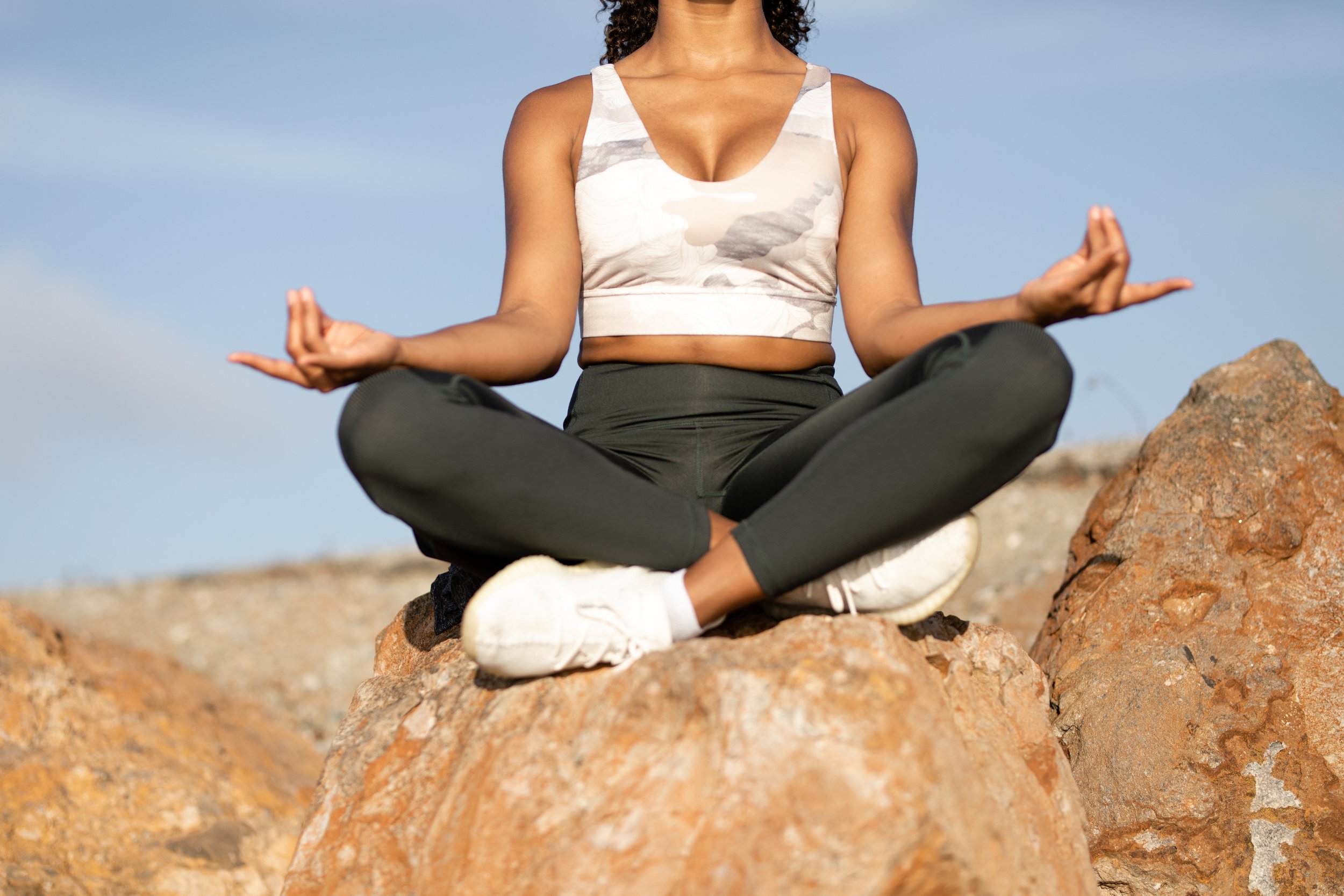5 Alternative Self-Care Practices to Therapy
Mental health is essential for living a fulfilling life, and it is just as important as physical health. However, many alternatives to therapy can help improve your mental health should you not be able to invest in therapy just yet.
Several practices can help you heal and maintain your mental health, including breathwork, mindfulness, nervous system regulation tools, spending time being creative, movement, and connecting with others. In this blog, I’ll cover how each practice works as an alternative to therapy to regulate your nervous system and improve your mental health.
Why Look for Alternatives to Therapy
There are several reasons why someone might want to explore alternatives to therapy to heal their mental health.
Seeing a therapist 1x per week doesn’t always “cut it” for actually making a change. We have to continue our work outside the therapy room and, sometimes, we need practice and motivation to do that work!
Self-care and self-help practices are a great way to supplement therapy and help you further your growth and meet the goals you set out for yourself and with your therapist.
Breathwork
Breathwork is the number one way to get your mind and body out of a state of anxiety and into a state of calm. It’s a powerful practice that can help you reduce stress, anxiety, and other negative emotions. It involves using various breathing techniques to calm your mind and body.
There are several types of breathwork, such as deep breathing, diaphragmatic breathing, and alternate nostril breathing. Deep breathing is a simple and effective technique that involves taking slow, deep breaths to calm your mind and body.
To practice deep breathing, find a comfortable seated position, close your eyes, and inhale deeply through your nose for four counts. Hold your breath for four counts, then exhale slowly through your mouth for eight counts.
Practicing breathwork is a great in-the-moment supplement to therapy and can have positive long-term effects on your mental health.
Seeing as you can take the time just about anywhere to stop and focus on your breath, I recommend this as a starting point for most of my clients.
Mindfulness
Mindfulness is the practice of being present and fully engaged in the moment. It involves paying attention to your thoughts, feelings, and surroundings without judgment. Whether it’s meditation, mindfully walking or eating, bringing a sense of present awareness to your day can help you increase your sense of self.
Practicing mindfulness can help you reduce stress, improve your mood, and enhance your overall well-being. To practice mindfulness, find a quiet space to be comfortable without distractions. Close your eyes and focus on your breath, observing the sensations in your body as you inhale and exhale. Whenever your mind wanders, gently bring your attention back to your breath.
Being Creative to Improve Your Mental Health
Being creative can help you express your emotions and improve your mental health. Using the creative side of your brain can build new neural pathways that can help you learn to cope in different ways.
Creative activities such as writing, drawing, painting, dancing, and singing can help you reduce stress, improve your mood, and boost your self-esteem. You don't need to be a professional artist to benefit from being creative.
The process of creating something can be therapeutic and help you release negative emotions. So next time you feel anxious or stressed, schedule a paint night with yourself and your favorite music!
Movement as an Alternative to Therapy
Movement is a powerful way to improve your mental health and regulate your nervous system. Moving your body in a joyful way helps you get in tune with yourself and what feels good for your body.
Exercise releases endorphins, which can help you reduce stress, anxiety, and depression. You don't need to engage in intense exercise, like HIIT workouts or running, to benefit from movement. Activities such as walking, dancing, and yoga can help you improve your mental health and overall well-being.
Spending time testing your body and exploring your physical body can take you out of your mind and into your body. Like meditation, you’ll end up focused on your breath and be able to focus on how your body is feeling as you move.
Connecting With Others
We are wired for connection, and creating connections with people that make us feel safe can help us to heal and grow. Social support can help you reduce stress, improve your mood, and enhance your overall well-being.
Sometimes you need an ear to talk to, and other times you crave connection in silence. Spending time with family and friends, joining a support group, or volunteering can help you build social connections and improve your mental health.
It’s important to remember that you’re not alone in this journey, and having a supportive circle will help you get there.
Getting Started
Several alternatives to therapy can help you improve your mental health, including breathwork, mindfulness, being creative, movement, and connecting with others.
These powerful tools can help you heal and maintain your mental health. Incorporating these practices into your daily routine can help you reduce stress, improve your mood, and enhance your overall well-being.
I’m Grace, a holistic psychotherapist, nervous system coach, yoga therapist and pain specialist. I started my self-development journey at 15 when I first began psychotherapy. After discovering the holistic world and working on regulating my nervous system by working with the mind and the body, I started to see big changes.
The Mindbody Healing Method (MHM) has completely changed the way I live and see the world and has let me be less reliant on therapy when life gets tough. This is why I devote my life to this work and absolutely love helping others heal and eliminate the pain and suffering that can come from chronic mental and physical pain.
Imagine finding peace in your mind and body, knowing that recovery is possible. That’s what the Mindbody Healing Method could do for you.
MHM is for women who want to feel free from chronic pain, fatigue, anxiety, and the overwhelm that comes with managing these conditions. You don’t want to “manage symptoms” or sit through hours of therapy but find the root cause and heal your pain.
If this blog post resonated with you and you’re interested in learning more about the Mindbody Healing Method, I encourage you to check out this page and see when the next available enrollment date is.
I teach my students different practices as alternatives to therapy that get them out of a fear response and into a calm, regulated, happy state of being in their life. If you’re interested in learning more about the Mindbody Healing Method, message me on Instagram to learn when the next round of MHM is starting.
And if you found this blog helpful, please share it with a friend and leave a comment below!



